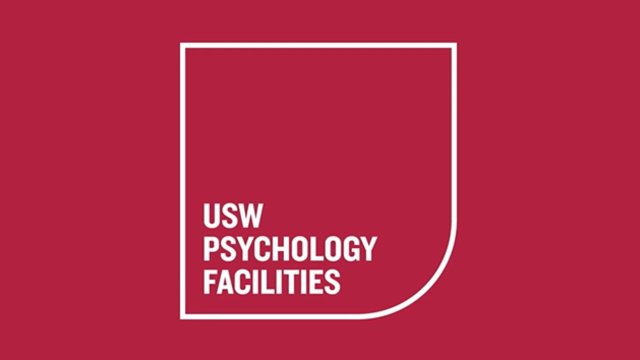Graduate destinations
Over 75,000 students were studying this subject in 2014/15.
72% of graduates went directly into employment.
Top graduate destinations:
- Human health and social work
- Education
- Retail/administrative and support
- Legal, social, and welfare professions
- Business, HR, and finance
- Marketing, PR, and sales
Studying Psychology at the University of South Wales
Sponsored content
Wondering what studying psychology is like? Academics and students at the University of South Wales describe their experiences.
Find out more
What courses are available?
Psychology is one of the most popular subjects to study at degree level. Many degree courses are accredited and follow the professional body guidelines, set out by the British Psychological Society. This is important if you want to pursue a career as a practicing psychologist with chartered status. Courses can focus on scientific research and/or applied psychology. Many course providers will therefore offer research facilities for studying perception, developmental psychology, cognition, and behavioural neuroscience, as well as for the applied side, such as studying neurorehabilitation, education, and health.
Universities and colleges in the UK offer a wide range of courses, including in specialist areas such as:
- Applied psychology
- Child psychology
- Clinical psychology
- Developmental psychology
- Educational psychology
- Experimental psychology
- Forensic psychology
- Social psychology
- Sport psychology
- Psychology
Course options include:
- single, joint, and multiple subject combinations
- full-time, part-time, and distance learning, as well as some courses with a placement (sandwich courses)
- qualifications ranging from BSc (Hons) and BA (Hons) degrees, to Foundation Certificates, as well as master's
Subject combinations:
Psychology is offered in combination with a very wide range of subjects, including:
- Criminology, criminal investigation, forensic science
- Sociology, social anthropology, social care, philosophy
- Biology, zoology, animal behaviour, environmental science
- Education, childhood studies, child development, counselling
- Accounting, finance, HR management, advertising, business, economics, entrepreneurship, marketing
- Archaeology, architectural design, art and design history, Celtic studies
- Computer science, computing, digital media and information, film and media studies
- English, creative writing, journalism, publishing, drama and theatre studies, dance, music
- Philosophy, politics, law, international relations
- Social history, European studies, tourism, geography, religious studies
- Mathematics, sport/sports studies
Find courses at UK universities and colleges
Are you considering an accelerated degree? Click here to read more about the possibility of completing your undergraduate course on a shorter timescale.
Professor Ann Colley, CPsychol Chief Executive, The British Psychological Society
Entry requirements
A levels – While you don’t need to have all three sciences at A level for a psychology degree, most universities prefer at least one out of chemistry, physics, biology, or maths.
Overall, a combination of good, academic A level subjects is required. Psychology A level is desirable, but not usually required. Other preferred subjects include sociology, geography, anthropology, economics, politics, philosophy, and history. Literature A levels can be helpful because of the report writing you will inevitably be doing, and maths/statistics will help with the analytical component of the degree. General studies is usually not considered appropriate.
Entry requirements range from CCC to AAB, with the universities and colleges most commonly asking for BBB.
Competition for places on UK psychology courses is intense, as the subject is very popular. Therefore, it is not uncommon for admissions tutors to request high grades or UCAS Tariff points. Check each course provider's entry requirements carefully. Tutors may also take GCSE grades into account as another way to filter the growing number of straight A students.
Scottish Highers – Entry requirements for Highers (the most common qualification) range from BBBB to AAAAB, with universities or colleges most frequently requiring BBBB. Occasionally, universities ask for Advanced Highers to supplement Highers. If Advanced Highers are requested, universities or colleges typically ask for AA.
You may be invited to attend an open day, or interview which can include a small group exercise led by academic staff, at which you will be asked to talk about a topic relevant to the course, and discuss it with other members of the group.
Personal statement
Universities and colleges will be looking for a well-written and structured statement, with evidence that you're well-informed about the subject and have a strong interest and motivation. This could be demonstrated by:
- informed but personal insights into the subject
- how you have pursued the subject outside of school or college
- related career ambitions, relevant work experience, or voluntary work
- additional reading and research of relevant topics, key issues, and content of the course
take a look at our full advice for your psychology personal statement.
Apprenticeships
If you want to combine work and study while earning a salary, you could consider an apprenticeship. Which apprenticeships are available, and how you apply, depends on where you live.
Find out more about apprenticeships across the UK.
Each apprenticeship sets out occupational standards for specific job roles, designed by employers. The standards outline the skills, knowledge, and behaviours required to demonstrate that an apprentice is fully competent in the job role.
Degree apprenticeships (Levels 5 – 7)
Key areas of employment
There are some professional careers requiring, or directly relevant to, studying psychology. Some of these require postgraduate-level qualifications, so you will need to consider further study after getting your degree before you can become a Psychologist.
- Clinical psychologist
- Counselling psychologist
- Educational psychologist
- Forensic psychologist
- Further education teacher
- Health psychologist
- High intensity therapist
- Occupational therapist
- Primary care graduate mental health worker
- Psychological wellbeing practitioner
- Sport and exercise psychologist
Note: If you are interested in becoming a psychiatrist, you need to qualify as a doctor/medical degree, then go on to train in psychiatry.
Related careers
A psychology degree would be useful in the following careers:
- Advice worker
- Careers adviser
- Counsellor
- Detective
- Human resources officer
- Market researcher
- Play therapist
- Psychotherapist
- Mental health nurse





















